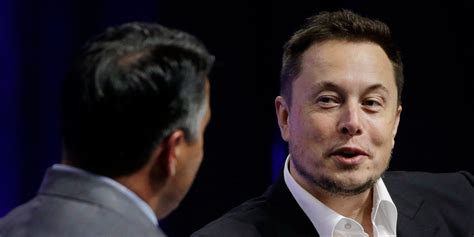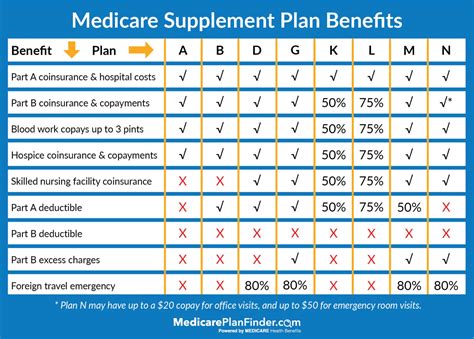
A former Tesla manager has predicted a bleak future for Elon Musk’s electric vehicle empire, suggesting it could be “game over” for the company if critical issues are not addressed. The insider, speaking in a recent interview, cited concerns over quality control, production scaling, and Musk’s leadership style as potential catalysts for Tesla’s downfall.
The anonymous ex-manager, identified as having held a significant role within Tesla’s operations, painted a picture of a company grappling with fundamental problems masked by its innovative image and Musk’s charismatic persona. The individual expressed doubts about Tesla’s ability to maintain its dominance in the increasingly competitive electric vehicle market, particularly as established automakers ramp up their EV production.
“The cracks are starting to show, and if they don’t address these underlying issues, it could very well be game over,” the ex-manager stated in the interview. “The innovation is there, the technology is groundbreaking, but the execution… that’s where they’re falling short.”
The core of the insider’s argument revolves around what they describe as a systemic failure to prioritize quality over quantity. The relentless pressure to meet ambitious production targets, according to the ex-manager, has resulted in compromised quality control procedures. This has led to a growing number of customer complaints and warranty claims, eroding Tesla’s reputation and impacting its bottom line.
“They’re so focused on getting cars out the door that they’re cutting corners,” the ex-manager explained. “The pressure from the top is immense, and it filters down throughout the entire organization. Quality becomes secondary to meeting production goals.”
The ex-manager also pointed to Tesla’s challenges in scaling production efficiently. While the company has made significant strides in expanding its manufacturing capacity, it continues to face bottlenecks and inefficiencies that hinder its ability to meet demand. The ongoing supply chain disruptions, exacerbated by global events, have further compounded these problems.
“Scaling production is not just about building more factories,” the ex-manager asserted. “It’s about streamlining the entire process, from sourcing raw materials to assembling the final product. Tesla hasn’t quite mastered that yet, and it’s costing them dearly.”
Furthermore, the insider raised concerns about Musk’s leadership style, describing it as both a strength and a weakness. While Musk’s visionary thinking and relentless drive have been instrumental in Tesla’s success, his often-erratic behavior and demanding expectations have created a high-pressure environment that can be detrimental to employee morale and productivity.
“Elon is a genius, no doubt about it,” the ex-manager conceded. “But he can also be incredibly demanding and unpredictable. That kind of pressure can take a toll on people, and it can lead to mistakes.”
The ex-manager’s assessment comes at a critical juncture for Tesla. The company is facing increasing competition from established automakers like General Motors, Ford, and Volkswagen, all of whom are investing heavily in electric vehicles. These companies have the advantage of established manufacturing infrastructure, extensive dealer networks, and decades of experience in the automotive industry.
Tesla also faces challenges from emerging EV startups like Rivian and Lucid, which are targeting the luxury and adventure segments of the market. These companies are attracting customers with their innovative designs, advanced technology, and commitment to sustainability.
To maintain its competitive edge, Tesla needs to address the issues raised by the ex-manager. This includes improving quality control, streamlining production, and fostering a more supportive work environment. The company also needs to continue investing in research and development to maintain its technological lead.
The ex-manager’s warning serves as a wake-up call for Tesla. The company’s future is far from assured, and it needs to take decisive action to address the challenges it faces. The “game over” scenario may be an exaggeration, but it underscores the seriousness of the situation. Tesla’s ability to adapt and overcome these challenges will determine whether it remains a dominant force in the electric vehicle market or fades into obscurity.
The insider’s perspective provides a rare glimpse into the inner workings of Tesla, offering valuable insights into the challenges and opportunities facing the company. While the ex-manager’s identity remains confidential, their assessment carries weight due to their extensive experience within Tesla’s operations.
Detailed Breakdown of Issues Raised by the Ex-Tesla Manager
1. Quality Control Deficiencies:
The ex-manager placed significant emphasis on what they perceived as a critical flaw within Tesla’s operational DNA: compromised quality control. The relentless pursuit of ambitious production targets, driven by Musk’s vision and investor expectations, has allegedly led to a systematic prioritization of quantity over quality. This manifests in several ways:
-
Accelerated Production Processes: To meet demanding deadlines, corners are reportedly cut in the assembly process. This could involve inadequate testing, rushed installations, and a general lack of attention to detail.
-
Insufficient Training: As Tesla rapidly expands its workforce, the quality of training may be compromised. Newly hired employees may not receive adequate instruction on proper assembly techniques and quality control procedures.
-
Supplier Quality Issues: The ex-manager suggested that Tesla may be forced to accept components from suppliers that do not meet the company’s quality standards due to supply chain constraints and cost pressures.
-
Rushed Vehicle Inspections: The final inspection process, designed to identify and rectify defects before vehicles leave the factory, may be inadequate due to time constraints and staffing limitations.
The consequences of these quality control deficiencies are far-reaching:
-
Customer Dissatisfaction: A growing number of Tesla owners have reported issues with their vehicles, ranging from minor cosmetic defects to more serious mechanical problems. This has led to widespread dissatisfaction and negative publicity.
-
Warranty Claims: The increased frequency of defects has resulted in a surge in warranty claims, putting a strain on Tesla’s service network and eroding its profitability.
-
Brand Reputation Damage: A reputation for poor quality can undermine Tesla’s brand image and make it more difficult to attract new customers.
-
Potential Safety Risks: In some cases, quality control deficiencies can pose a safety risk to drivers and passengers.
2. Production Scaling Challenges:
Tesla has consistently struggled to scale up production to meet demand. While the company has invested heavily in new factories and production lines, it continues to face bottlenecks and inefficiencies. The ex-manager identified several key challenges:
-
Supply Chain Disruptions: Global supply chain disruptions have made it difficult for Tesla to obtain the components it needs to build its vehicles. This has led to production delays and increased costs.
-
Manufacturing Complexity: Tesla’s vehicles are highly complex, with thousands of individual components. This complexity makes it difficult to streamline the production process and improve efficiency.
-
Automation Challenges: Tesla has invested heavily in automation, but the company has struggled to implement these technologies effectively. In some cases, automation has actually slowed down production.
-
Logistics and Distribution: Tesla faces challenges in transporting vehicles from its factories to customers around the world. This can lead to delays and increased costs.
-
Workforce Management: Managing a large and rapidly growing workforce is a challenge in itself. Tesla needs to ensure that it has enough skilled workers to operate its factories efficiently.
3. Elon Musk’s Leadership Style:
Elon Musk’s leadership style is a subject of much debate. While his vision and drive have been instrumental in Tesla’s success, his demanding expectations and often-erratic behavior can create a high-pressure environment that is detrimental to employee morale and productivity. The ex-manager highlighted the following concerns:
-
High-Pressure Environment: Musk is known for setting ambitious goals and demanding that his employees work long hours to achieve them. This can lead to burnout and stress.
-
Micromanagement: Musk is reportedly very involved in the day-to-day operations of Tesla, which can stifle creativity and innovation.
-
Erratic Behavior: Musk’s unpredictable behavior can create uncertainty and anxiety among employees.
-
Lack of Empathy: Musk has been criticized for his lack of empathy and his willingness to sacrifice employee well-being in pursuit of his goals.
-
Communication Issues: Musk’s communication style can be abrasive and insensitive, which can damage relationships with employees and stakeholders.
4. Competitive Landscape:
The electric vehicle market is becoming increasingly crowded, with established automakers and emerging startups all vying for market share. Tesla faces significant competition from:
-
Established Automakers: General Motors, Ford, Volkswagen, and other established automakers are investing heavily in electric vehicles. These companies have the advantage of established manufacturing infrastructure, extensive dealer networks, and decades of experience in the automotive industry.
-
Emerging EV Startups: Rivian, Lucid, and other EV startups are targeting the luxury and adventure segments of the market. These companies are attracting customers with their innovative designs, advanced technology, and commitment to sustainability.
-
Chinese EV Manufacturers: Companies like BYD and Nio are rapidly expanding their presence in the global EV market. These companies are offering affordable electric vehicles with competitive features.
To maintain its competitive edge, Tesla needs to:
-
Improve Quality Control: Addressing the quality control deficiencies is paramount.
-
Streamline Production: Continuing to improve production efficiency and reduce costs.
-
Innovate and Differentiate: Investing in research and development to maintain its technological lead and differentiate its products from the competition.
-
Expand its Product Line: Offering a wider range of electric vehicles to appeal to a broader range of customers.
-
Improve Customer Service: Providing excellent customer service to build loyalty and advocacy.
5. Other Potential Challenges:
Beyond the core issues identified by the ex-manager, Tesla faces a number of other potential challenges:
-
Regulatory Scrutiny: Tesla is facing increasing regulatory scrutiny from government agencies over issues such as safety, emissions, and labor practices.
-
Geopolitical Risks: Tesla’s operations are exposed to geopolitical risks, such as trade wars, political instability, and natural disasters.
-
Raw Material Costs: The cost of raw materials used in electric vehicle batteries, such as lithium and cobalt, is rising, which could put pressure on Tesla’s profitability.
-
Cybersecurity Risks: Tesla’s vehicles are connected to the internet, which makes them vulnerable to cybersecurity attacks.
-
Recruiting and Retaining Talent: Attracting and retaining top talent is essential for Tesla’s success. The company needs to offer competitive salaries and benefits, as well as a positive work environment.
The ex-manager’s interview provides a valuable perspective on the challenges and opportunities facing Tesla. While the “game over” scenario may be an exaggeration, it underscores the seriousness of the situation. Tesla’s ability to adapt and overcome these challenges will determine whether it remains a dominant force in the electric vehicle market or fades into obscurity. The company’s response to these criticisms and its commitment to addressing these issues will be closely watched by investors, customers, and competitors alike.
FAQ (Frequently Asked Questions)
1. Who is the ex-Tesla manager who gave this interview?
The identity of the ex-Tesla manager is being kept confidential to protect them from potential repercussions. The source article identifies the individual as having held a “significant role” within Tesla’s operations, providing them with firsthand knowledge of the company’s internal workings. The manager’s anonymity is a common practice in journalism to encourage whistleblowers and protect their privacy and careers, especially when criticizing powerful entities.
2. What are the main concerns raised by the ex-Tesla manager?
The ex-Tesla manager’s primary concerns revolve around four key areas: compromised quality control due to pressure to meet production targets, challenges in scaling production efficiently, Elon Musk’s demanding leadership style, and the increasing competition in the electric vehicle market. They believe these issues, if unaddressed, could lead to a significant decline in Tesla’s market position.
3. How does the ex-manager’s assessment contrast with Tesla’s public image?
Tesla, under Elon Musk’s leadership, has cultivated an image of innovation, technological superiority, and rapid growth. The ex-manager’s assessment presents a stark contrast to this public image, suggesting that the company is grappling with fundamental operational and cultural problems that could undermine its long-term success. The manager alleges that Tesla’s focus on innovation and growth has come at the expense of quality and employee well-being.
4. What actions does the ex-manager suggest Tesla needs to take to avoid the “game over” scenario?
The ex-manager emphasizes the need for Tesla to prioritize quality control, streamline its production processes, and foster a more supportive work environment. They also highlight the importance of continued investment in research and development to maintain Tesla’s technological lead and differentiate itself from competitors. Addressing these issues, according to the ex-manager, is crucial for Tesla to remain a dominant force in the EV market.
5. How reliable is the ex-manager’s assessment, considering their anonymity and potential bias?
While the ex-manager’s anonymity prevents independent verification of their specific role and experiences within Tesla, their assessment aligns with some publicly reported issues, such as customer complaints about quality control and concerns about Musk’s leadership style. The fact that they held a significant role within the company lends credibility to their perspective. However, it’s important to acknowledge the potential for bias, as the ex-manager may have personal grievances or differing viewpoints from current Tesla leadership. Journalists consider the source’s knowledge, experience, and potential motives when evaluating the reliability of anonymous sources.









